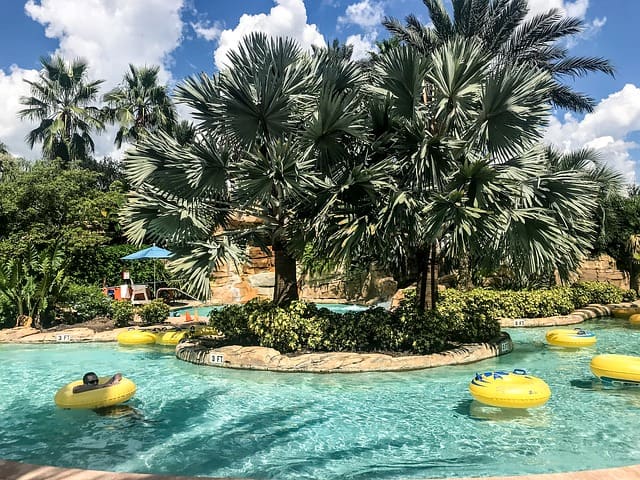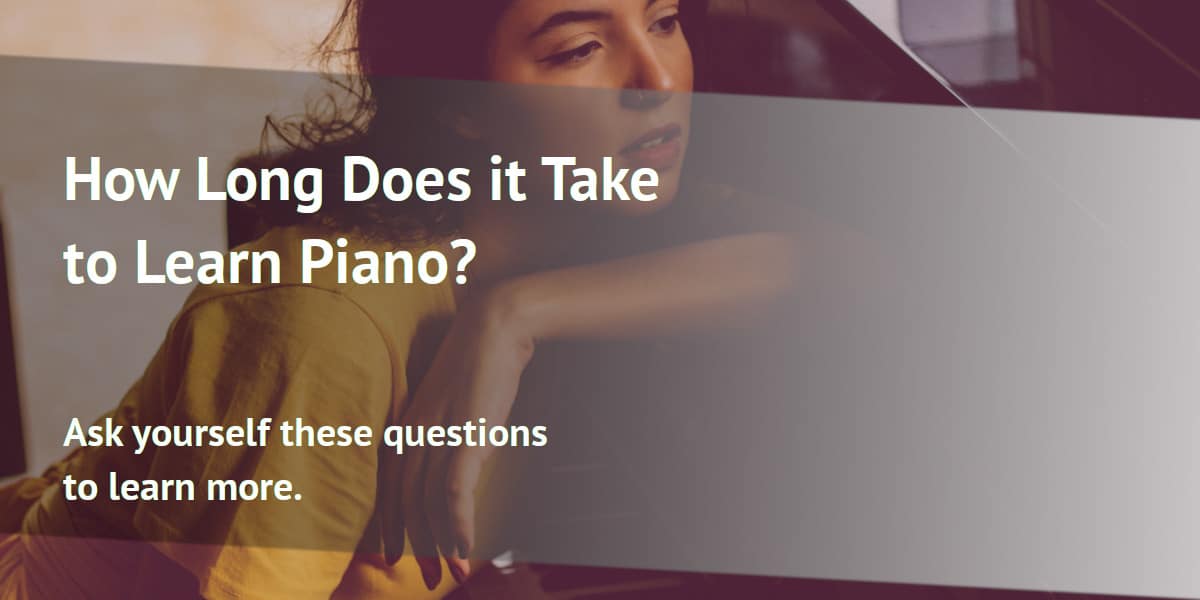When you start learning a skill like piano, it’s normal to wonder, “how long is this going to take me?” You’re impatient because it seems like it will take forever to learn piano. I want you to feel optimistic.
In this article, I am going to put forth a few ideas that will help you answer this question for yourself. So, here are 6 questions you should ask yourself when you’re wondering how long this will take:
Question 1:
What does progress mean to me?
How high are your standards for your piano playing?
Of course, the higher they are, the harder it’s going to be to reach them. So, ask yourself: why did I set them so high, anyway? Where did I learn to do that?
How high are your standards for yourself?
The more talented you are, the more you will realize how short you are falling of your standards, and the harder it’s going to be…
Why it’s important:
Only when you have a clear definition of “progress” will you be able to evaluate your progress realistically.
Question 2:
How much patience do I have?
I wish there were a quick way to get good at piano, but I haven’t found a shortcut. Instead, what I have found are:
Slow ways that work.
Ways that will waste your time and make you so frustrated you will eventually quit.
So, at best, it’s slow-going. This stuff is just really hard. Why do you think most people can’t do it? But you can do it, you know. It will just be slow. Like a lazy river.

Why it’s important:
Learning piano will take time. Learning to enjoy the slow pace will make things easier.
Question 3:
Do I feel guilty about wanting progress now?
A beginning adult student said to me:
“I think the biggest lesson for me is that this is going to take a long time. I like instant gratification, and the ego likes that too, right? But with continued effort, eventually, there will be music.”
Yes, it might take a long time to learn piano, a long time before you sound good, and a long time before you are happy with your playing.
Now, our culture teaches us that there’s something wrong with wanting instant gratification.
Is it possible there is one part of you who seeks instant gratification, and another who labels it as bad? Which part is the ego, and which part is the one who lives only in the moment, experiencing without evaluating?
Actually, I wonder if there is no gratification other than instant (it’s not like oatmeal). What is delayed gratification, apart from a story you are telling yourself about the future, about yourself and the meaning of your actions?

When you were a child, did you have any problems seeking instant gratification? When did you learn it was a problem? Who told you this? Do you believe it 100%, or is there any part of you to whom it’s news, who maybe even feels hurt by it?
If you’re not being gratified, why not? Really, pay attention to this. Is there anything there, in that space between when you try to play (and fail) and when you get frustrated with the whole thing? You’re allowed to be frustrated, you know. You’re allowed to want this to be fun.
Why it’s important:
Learning piano requires you to accept your feelings in the moment. Even if you’re feeling impatient.
Question 4:
Do I know how to make piano practice fun?
It may take a long time to learn to play the piano well. In the meantime, can you make it fun? For example, can you find some pleasure in the physical movement, regardless of the sound? Or, can you find any satisfaction even in the ugly sounds, knowing that they are the result of your body’s own freedom? Even if you don’t play a note, can you find something right there, in that place where you know that you have the power to move as you see fit, or not, depending on your whim?
If none of that works, can you just stand up and scream? Would that be fun?
What would it look like if you didn’t label it? If you played an exercise, messed it up, got frustrated, and just kept going? Is it even the playing that frustrates you? Maybe it’s just when you’re in the shower thinking about playing? It’s so easy to label the whole thing. But frustration happens at a specific moment in time. What is triggering it?
Can you just make it fun? Just take it. It’s yours, believe it or not.
Does your hand hurt? Then stop doing whatever you’re doing that makes it hurt.
There are two common objections I hear to this kind of thinking:
- “But then I won’t play it right.”
Yeah, you won’t. But your hand won’t hurt anymore either. You decide. - “But if I don’t work hard and make sure it’s right, I’ll never get better.”
- Why do you want to get better, anyway? You’ve already said you want instant gratification, and if working hard is preventing you from getting your gratification, how much do you really want to work hard and get it right, anyway? If you don’t really care about that, why are you telling yourself you do?
Why it’s important:
If you practicing is fun, you will want to practice. If it’s not, you won’t. So, you should focus on making practicing fun.
Question 5:
Am I practicing well?
Let’s suppose you are my piano student. If you ask me, “am I progressing fast enough?”, I would answer:
“I can assure you that you are progressing exactly as you should be given the amount of practice done between lessons, the level of willingness during lessons, and the degree to which practice reflects the exercises that are done during lessons.”
As a teacher, my responsibility is to my student. Unfortunately, this is difficult when money is involved, because I want paying clients. However, as much as I might wish I could, I cannot magically cause you anyone to improve at piano. I have no minimum expectations as far as “progress” goes. My job is to make the student aware of cause and effect, and I trust that they will make the best use of this awareness that they know how to.
If you are teaching yourself, the same holds true. That is, the rule of cause and effect still applies. Except now, you have to be your own teacher.
The amount of time is takes to get good at piano will be reduced if:
- You practice more.
- You practice well.
- You are willing to try new things.
Why it’s important:
How you practice just as important as how much you practice (if not more important).
Question 6:
Am I appreciating the journey?
It takes a long time to learn a musical instrument such as piano, time which is measured in years, not weeks. So, if you judge the success of your practicing based only on the amount of progress you make, there will always be a feeling of failure.
The process of piano practice itself must be enjoyed and appreciated for what it is. Even with no visible progress in the way of piano playing (the worst-case scenario), studying the piano will still teach you:
What I have found personally is that sometimes these lessons need to be learned before noticeable “progress” occurs.
But, don’t discount them. These are valuable lessons! So, try to enjoy learning them.
Why it’s important:
Piano can teach you a lot. The more you pay attention to how many different things you are learning, the more progress you will feel you are making.
So, how long does it take to learn piano?
If you’re still asking this question, I can’t blame you, because I didn’t answer it.
The fact is, there’s no answer to the question of how long it will take to get good at piano. It’s entirely subjective, and every pianist comes from a different place. It’s a bit like asking “how long does it take to clean a house?” That would depend on how clean you want it, how much dirt there is, how fast you are at cleaning, what kind of cleaning supplies you have, etc.

Your turn
Spend some time with these questions. Choose one everyday, and ask it before you practice. As you are practicing, just notice what shows up.
Then, comment below and let me know!
